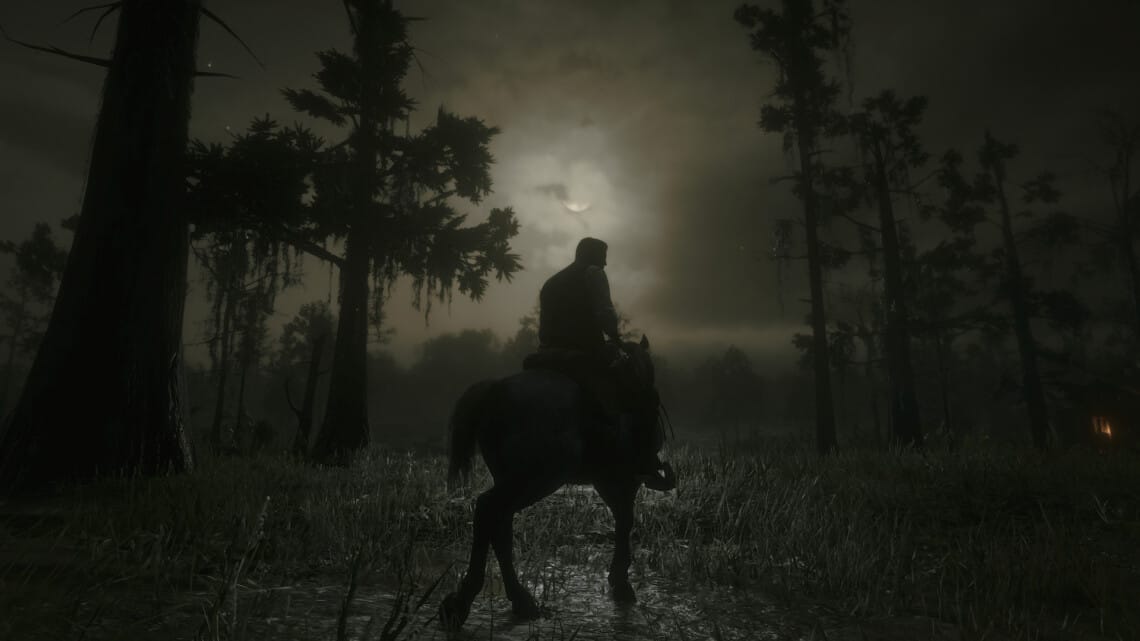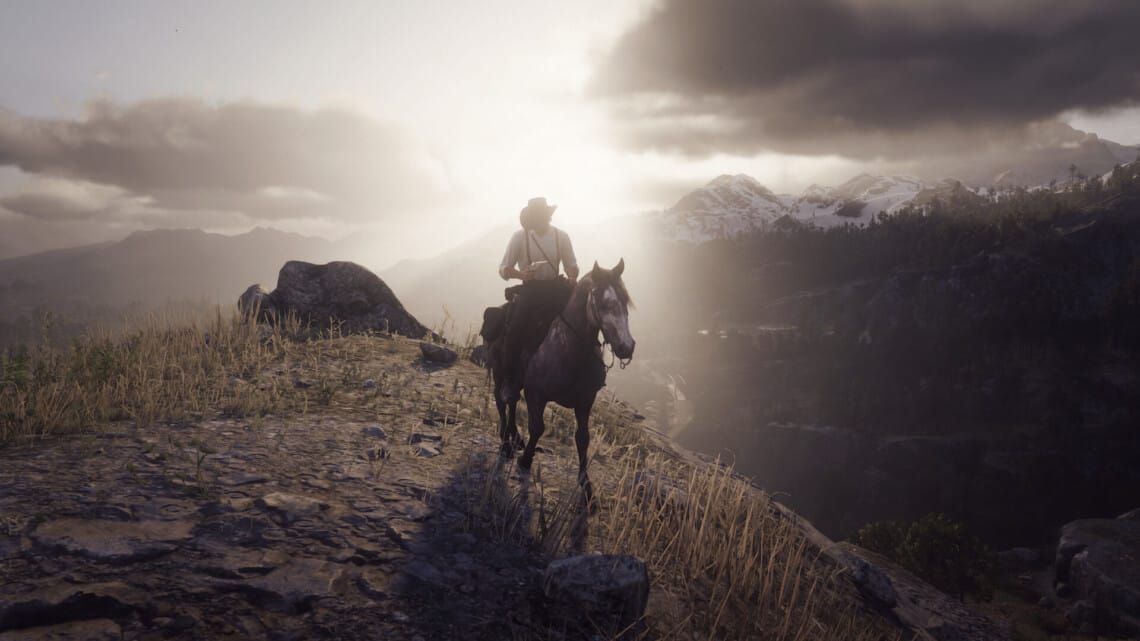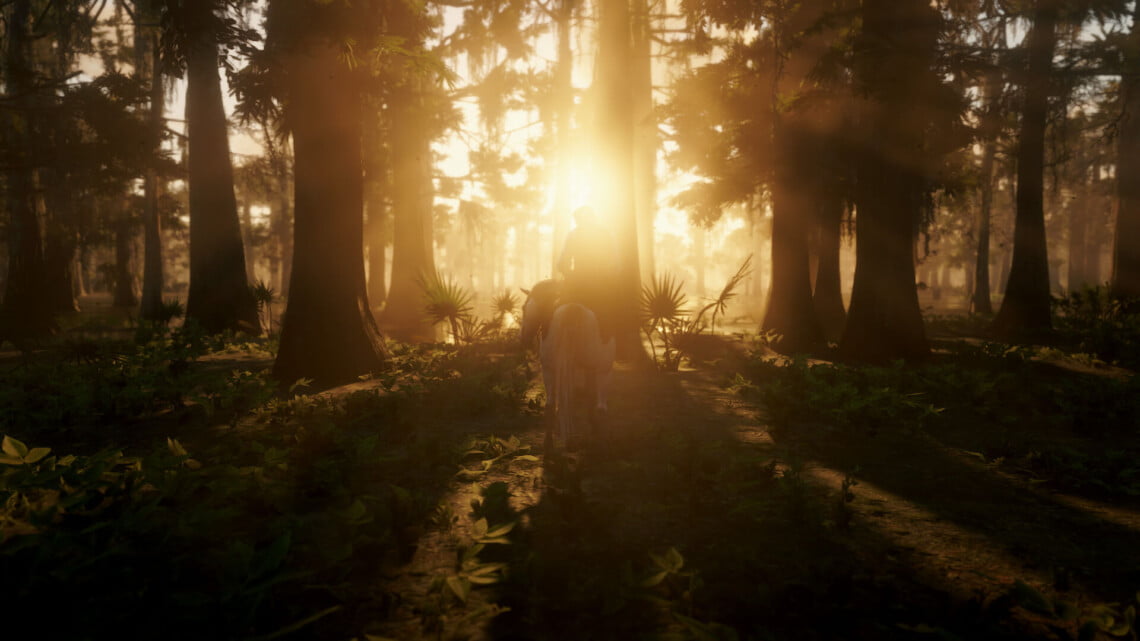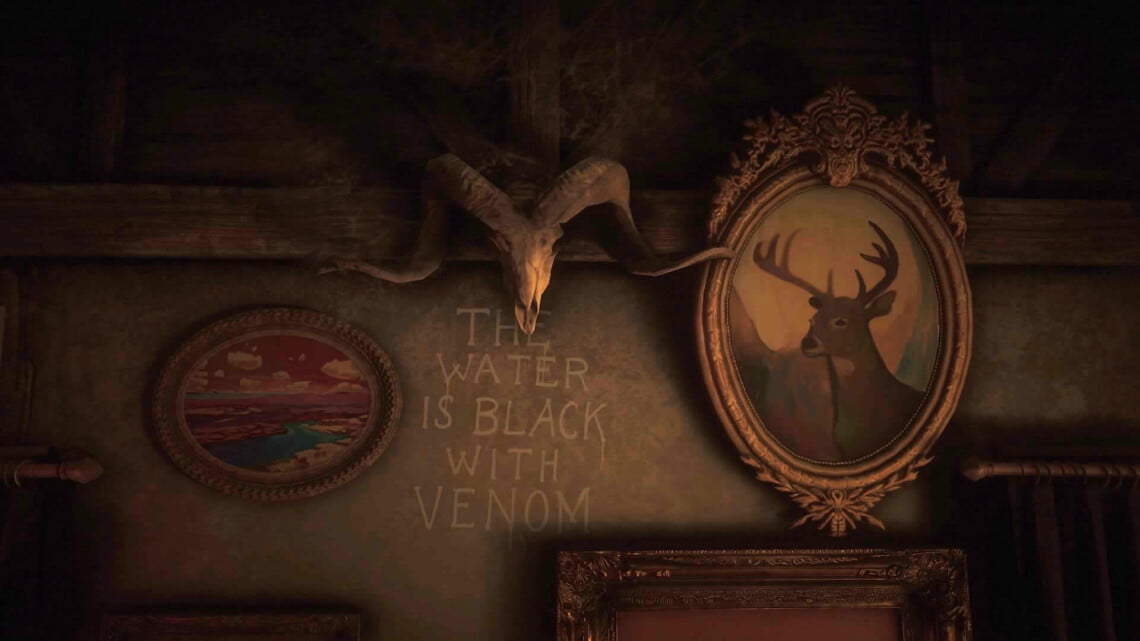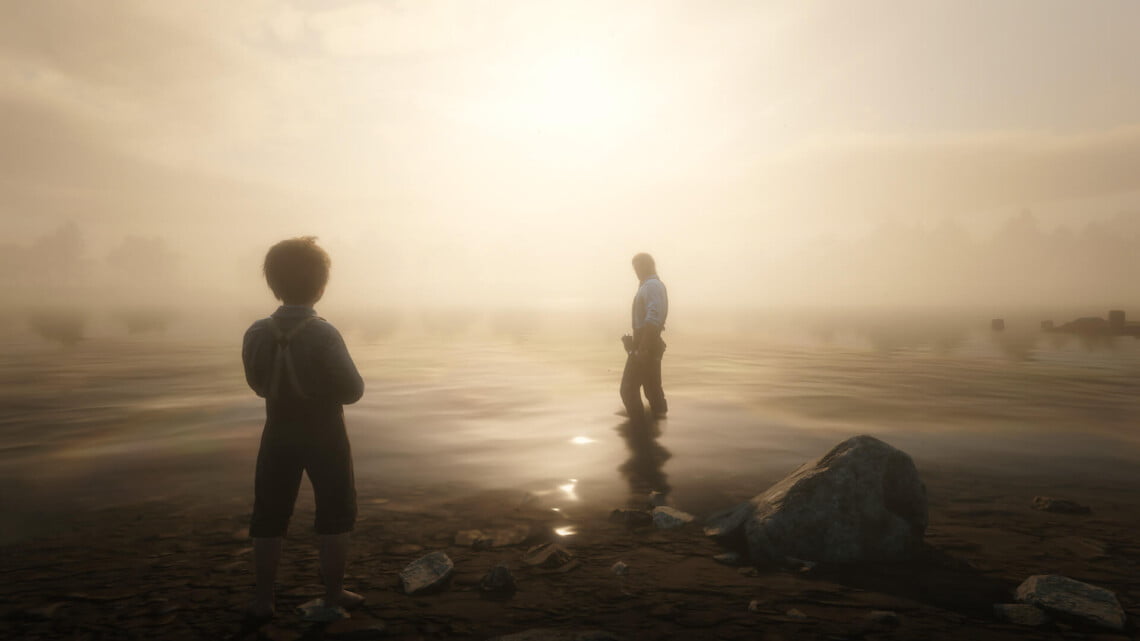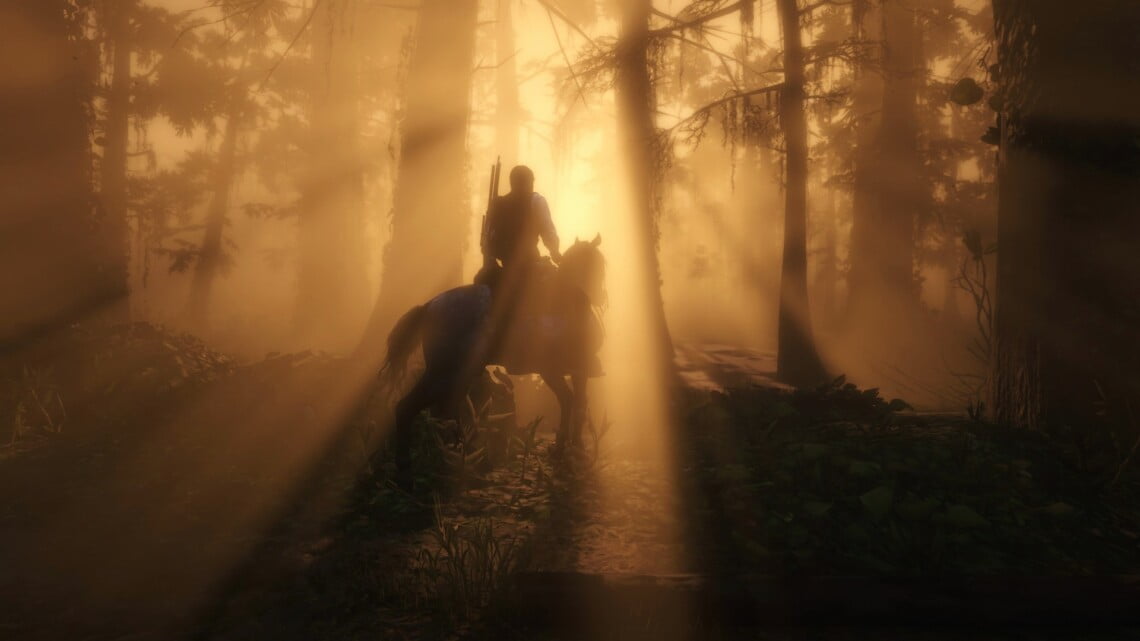Frankenstein, by Mary Wollstonecraft Shelley, is the first science fiction novel. Famously, it was conceived as part of a contest between Shelley, her husband Percy, and their friends Lord Byron and John William Polidori. The group was staying in Geneva, where Byron rented a house called Villa Diodati. They were “delighted to learn that Milton had once stayed there, an astonishingly good omen for this group who by now saw themselves as fallen angels, like Milton’s Satan: rebellious and misunderstood” (Gordon 168).
On the face of it, the writers' choice to use Wuthering Heights to shape the narrative of Red Dead Redemption 2 was a promising one. Emily Brontë’s 1847 novel, Sandra M. Gilbert and Susan Gubar explain, is “a radically corrective ‘misreading’ of Milton . . . with the fall from heaven to hell transformed into a fall from a realm that conventional theology would associate with ‘hell’ (the Heights) to a place that parodies ‘heaven’ (the Grange)” (189). RDR2 attempts a similar project, with Arthur’s fall into knowledge being not the path to sin, but to redemption.
Paradise Lost and Arthurian legend are both so steeped in misogyny that removing it would transform either work unrecognizably. Eve, as Milton infamously writes her, is a dim-witted, sexy doll, if a doll could also be evil. This conception of Eve connects directly to the chivalric treatment of women. Many people take offense at the idea that chivalry is misogynistic because they think of it as “being nice to women,” when its real function is to infantilize and patronize women based on the presupposition that they are lesser beings that must be guided and taken care of – Eves who must be protected from their own sinful nature.
Paradise Lost is one of the most celebrated literary works of all time. Paradise Regained, John Milton's followup to the epic, is less so. The second poem tells the story of the Son (Christ) wandering in the desert, where, after 40 days and 40 nights, Satan accosts him and tries to tempt him to break his obedience to God. It is, quite frankly, not very interesting: there's no suspense at all. Satan losing is foregone conclusion. The Son is totally unbothered.
I've discussed Paradise Lost in some depth now, but there are still quite a few allusions that didn't fit elsewhere. This also seems like the best place to discuss the other allusions to the Romantics in the game. Here's a roundup of the essays, followed by a list of the other references the game makes.
RDR2 features a motif of snake imagery as a way of alluding to Paradise Lost. Here are some of the highlights.
Red Dead Redemption 2 mourns the loss of Eden: the outlaw life in pre-Industrial America. But under the brutal rule of colonialism, who is it who lost paradise? All articles on this site feature detailed discussion of literary allusions in Red Dead Redemption 2, and as such contain unmarked major and minor spoilers for the game, and occasionally the eventual fates of some characters in Red Dead Redemption. Read at your own risk. One of the cleverest things the developers did in Red Dead Redemption 2 was to make the technical limitations of Red Dead Redemption thematic. John can’t swim; Arthur can. John prints; Arthur writes. Arthur is more eloquent…
One of the writers’ apparent motivations in writing Red Dead Redemption 2 was to make Red Dead Redemption even more sad. The way the first game is retconned in the second one can be annoying because of the mismatch in details, but at times, it’s very effective ...
In Red Dead Redemption 2, choices for the player are plentiful, but they rarely have any impact on the game’s narrative. At most, they affect its mood. Of course, in any story game the outcomes have to be predetermined (at this stage, at any rate), but the differences that appear in the story are small indeed. The player can’t change any outcome; you can’t save anyone.
Paradise Lost, as one of the most essential influences of Red Dead Redemption 2, naturally contributes more than characters to the game’s narrative. Like the poem, one of RDR2’s central themes involves the gaining of knowledge. However, the game and the poem come to divergent conclusions about that concept. What Milton condemns, RDR2 declares imperative.

